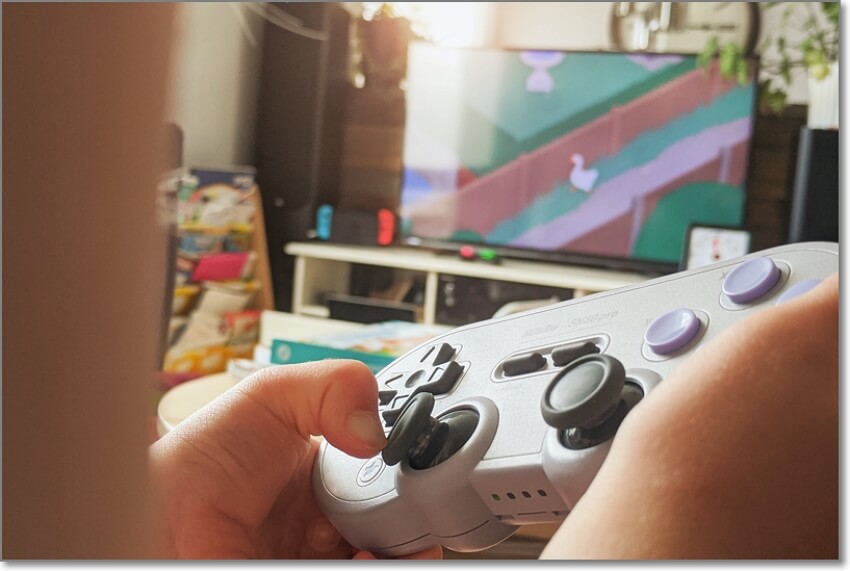Screen Time and Teen Mental Health
All Topics
- Screen Time Hot Articles
- Screen Time Newest Articles
Sep 11, 2024 Filed to: Screen Time Control Proven solutions
Smartphones, computers, and TVs have become somewhat of a necessity these days. You can watch videos, listen to music, find friends on social media, etc. But as good as it sounds, kids, especially teens, struggle with mental issues due to excessive screen time. Lack of sleep, eyesight problems, and FOMO are just some of the issues affecting teens. So, in this post, we’ll discuss the dangers of excessive screen time and how to cultivate a healthy screen time habit for your kid.
Part 1: Why Screen Time Leads to Teen Mental Health Problems?
Kids are generally inseparable from their computers and mobile phones. These gadgets let them watch the latest movies, stream music, read books, chat with friends, you name it. Not only that, but technology also helps teenagers remotely attend their classes, especially now that Covid-19 is still an issue. So, it’s safe to conclude that technology has made life easier and more entertaining.
But too much screen time can negatively affect your child’s mental health. For example, research suggests that excessive screen time leads to a lack of sound sleep. Researchers say that exposure to excess blue light can reduce melatonin production. This is the hormone that helps control the natural sleep-and-wake cycle of your teenage child. Blue lights are emitted by smartphones, tablets, LED bulbs, TVs, etc. And you know what lack of enough sleep means; anxiety, depression, anger, and other mental issues.

Another dark side of excessive screen time on your teen’s mental health is the lack of communication skills. Here’s the thing; when your kid spends too much time with their computer or smartphone, they miss out on the social aspect of life. This can be things like interacting with people and developing vital communication skills. In other words, your child can become an introvert if they spend all their time indoors playing video games. As a result, they may develop anger, depression, untidiness, etc.
Have you ever heard of FOMO (Fear of Missing Out)? Excessive screen time is at the center of this ‘unwanted’ slang. With FOMO, your kid will constantly check their social media pages to see who has posted what. And as you may already know, other social media users can make your kid feel disadvantaged in many ways. For example, most teenagers don’t know that most social media photos are edited for PR purposes.
Finally, your kid might start becoming angry and violent if they spend lots of their time playing violent video games. Researchers have found that failure to win a game level and master a game can lead to frustration and aggression. They even claim that this is the case in violent and non-violent games. In addition, some video games are too violent with excessive shootings, bloodshed, and vulgar language. So overall, video games can significantly change your kid’s behavior.
Part 2: How Much Screen Time is Healthy?
Love it or hate it, technology is good for your kid. If used moderately, technology can help your child grow and transition into a holistic person. For instance, your kid can use platforms like YouTube and Google to learn new words and research their homework. Also, social media apps like Likee and TikTok allow your child to tap into their hidden abilities by creating short and exciting videos. And of course, Facebook, Facebook Messenger, Instagram, Twitter, and more allow your kid to meet new friends and share like-minded thoughts.
But what’s the healthy screen time for kids? Ideally speaking, there’s no one-size-fits-all when it comes to screen time for teenagers. It all depends on how well you use this technology. In other words, screentime shouldn’t interfere with other essential activities like sleeping, learning, grooming, relationships, playing, mental health, etc.
However, experts recommend less than two hours per day minus work-related screen time for adults. The exact amount of time applies to children older than 5 years. For kids between 2 to 5 years, the American Academy of Child & Adolescent Psychiatry recommends less than 3 hours on weekends and 1 hour on weekdays. It even gets worse for kids aged 0 to 18 months as the organization recommends no screen time at all. Overall, adults and older kids have no specific screen time limit.
Part 3: How to Avoid and Fix Excessive Screen Time Problems?
Now let’s get straight to some tips on curbing excessive screen time for teenagers. First, parents and caregivers should discuss the dangers of excessive screen time with their teenage kids. You can come up with hard facts on how excess screen time can negatively affect their mental and physical health. Remember, dialog and advice will work best with your ‘rebellious’ teenage child.
After advising your kid about the dangers of excessive screen time, make sure you lead from the front. The thing is that teenagers and kids mainly learn from adults and their parents. Therefore, it’s best practice to be a good role model when it comes to screen time matters. For example, don’t go to bed or at the dining table with your phone. Or, you can go for a walk or a run during your free time.

Finally, use a professional parental control app like Wondershare FamiSafe to monitor and control your child’s screen time. With this parental control app for Android and iOS, you can get detailed activity reports on the amount of time your techie child spends on their device and on which particular apps. Then, you can proceed to limit their screen time based on schedules like daily, weekly, or monthly. You can even block that addictive app altogether.
Below are some FamiSafe key features to cultivate a healthy screen time:
- Get activity reports: FamiSafe allows parents to follow their kid’s daily, weekly, or monthly screen time usage and on which apps. This way, parents can know the most addictive apps on their kid’s smartphones and take the appropriate steps.
- Block addictive apps: After finding out the addictive apps, block them remotely on your child’s phone. For example, if it’s Facebook, you can block the app until your child has finished their home activities. You can even block apps and the smartphone screen by schedule.
Protect the mental health of your kids by setting a time limit on gadget usage with the help of this video.
- Web Filter & SafeSearch
- Screen Time Limit & Schedule
- Location Tracking & Driving Report
- App Blocker & App Activity Tracker
- YouTube History Monitor & Video Blocker
- Social Media Texts & Porn Images Alerts
- Works on Mac, Windows, Android, iOS, Kindle Fire
Conclusion
There you go! Screen time can be a hit or miss depending on how your child uses it. If used in moderation, screen time is very educative and beneficial. But excessive screen time can lead to mental health issues like anger and depression. So, teach your teenage child how to use their screen time and lead from the front. And if they are 13 years or younger, install FamiSafe to have complete control over their digital lifestyles. I hope this helps!


Joanne Croft
staff Editor